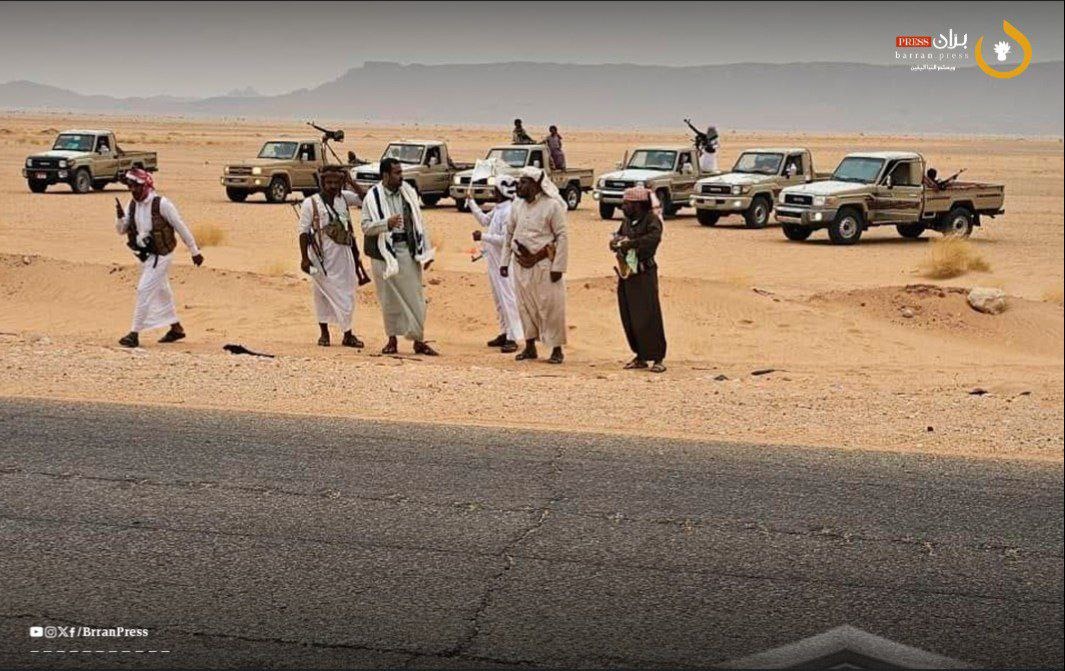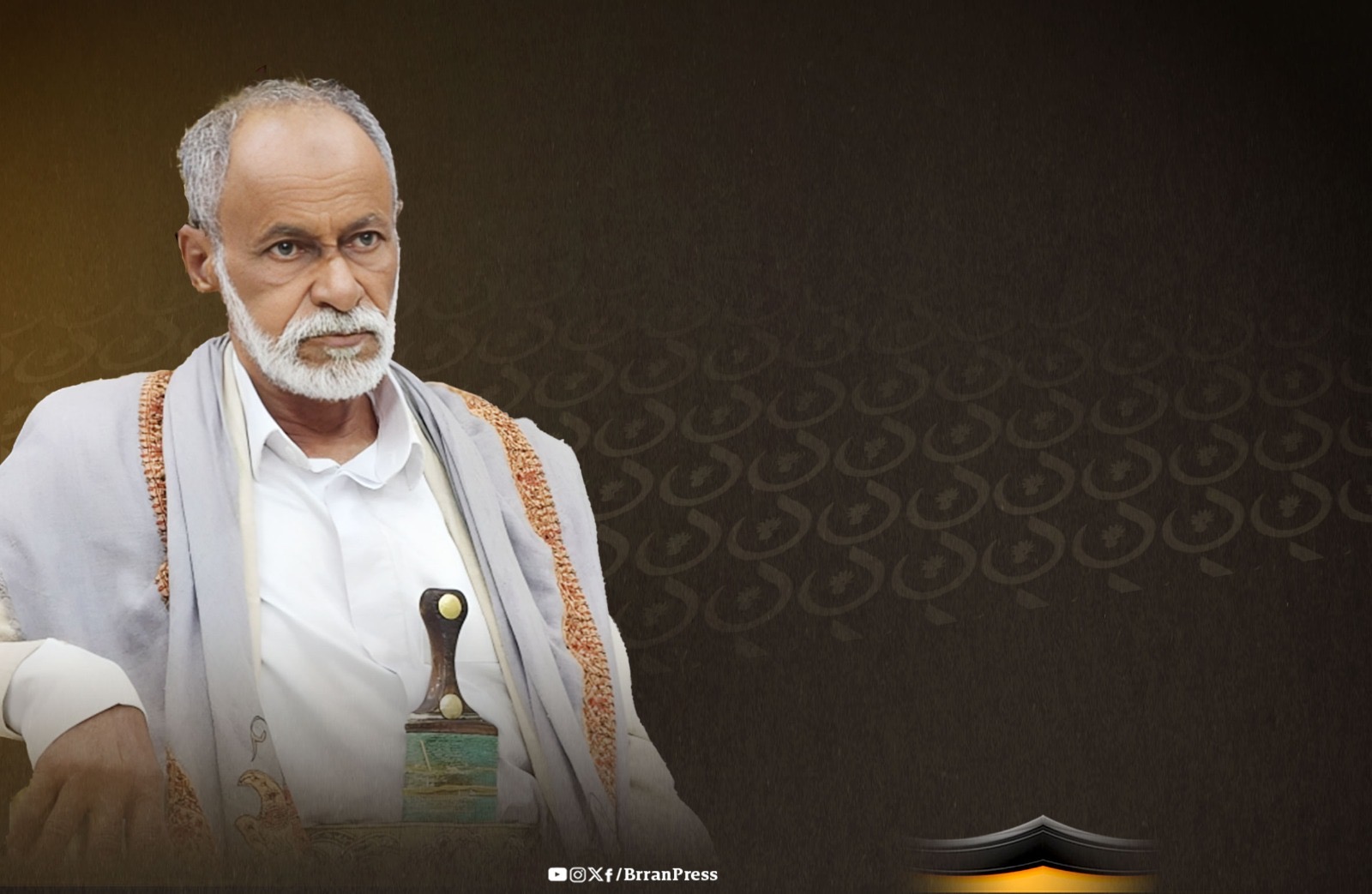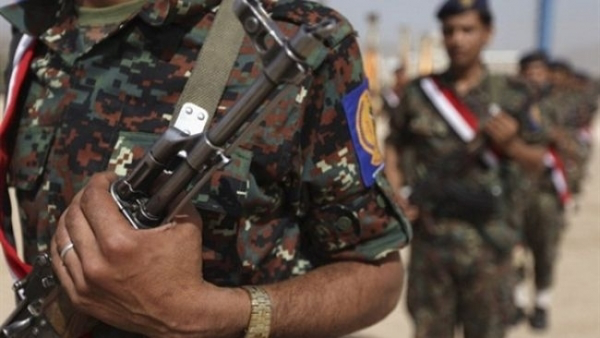
Barran Press
A recent analytical study suggests that certain parties in Yemen deliberately aimed to disrupt the recent visit of President of the Presidential Leadership Council, Rashad Al-Alimi, to Hadhramaut province (southeastern Yemen) by escalating tensions surrounding the visit.
The study, published by the Mukha Center for Strategic Studies and reviewed by "Barran Press," cites the absence of members of the Presidential Leadership Council affiliated with the Southern Transitional Council (STC), including Faraj Al-Bahsani, the former governor of Hadhramaut, as evidence.
According to the study, media outlets aligned with the STC continued to incite and agitate the people of Hadhramaut. Meanwhile, Ahmed Saeed bin Brik, a leader in the STC, expressed his full solidarity and support for the demands of Hadhramaut, as articulated by the "Hadhramaut Tribes Alliance," in a communication with Amr bin Habrish. Al-Bahsani also echoed this sentiment.
The Mukha Center for Strategic Studies dedicated its study to analyzing the reasons behind and possible scenarios for the escalation of the "Hadhramaut Tribes Alliance" in response to Al-Alimi's visit, which lasted approximately 15 days. The study highlights the presence of "several factors contributing to the ongoing tension in Hadhramaut province."
The study identifies the "increasing talk of a political settlement involving the sharing of oil and gas revenues between the legitimate government and the Houthis, and the approaching oil export" as a key factor behind the escalation spearheaded by both the "Hadhramaut Comprehensive Conference" and the "Hadhramaut Tribes Alliance," led by Amr bin Habrish, against the local authorities and Al-Alimi's visit. The study notes that this development has "revived tension and unrest in the province."
The study also points to the deterioration of economic and living conditions as another contributing factor. "Areas under the control of the legitimate government have witnessed a dramatic deterioration in living standards due to the ban on oil exports since October 2022, coupled with a decline in the amount of funds previously channeled by the 'Arab Coalition' countries," referring to Saudi Arabia and the United Arab Emirates.
The study states that this deterioration has had a multiplied effect on Hadhramaut, as the export ban has deprived the province of significant financial resources compared to other governorates. Hadhramaut previously received 25% of the revenue from oil exports extracted from its territory.
The Mukha Center for Strategic Studies believes that "the decline in the legitimate government's financial resources and the value of the national currency has led to a significant deterioration in living conditions in Hadhramaut province, generating widespread public discontent. This discontent has contributed to the tribes' response to the demands raised by the 'Hadhramaut Comprehensive Conference' and the mobilization undertaken by the 'Hadhramaut Tribes Alliance.' It has also fostered a degree of public sympathy for the actions of the 'Hadhramaut Tribes Alliance.'"
The study delves into a third factor contributing to the escalation, which it identifies as "poor management of the province." The study notes that, for at least the past decade, Hadhramaut has not been successful in appointing a governor who possesses the necessary competence and effectiveness and enjoys consensus among political and social components. This has deprived the province of genuine opportunities for development and stability, unlike the situation in Marib under its current governor, member of the Presidential Leadership Council, Sultan al-Arada, and Shabwa during its administration by the former governor, Mohammed bin Adio, from November 26, 2018, to December 25, 2021.
The study also highlights what it calls a "conflict of interests" between Governor Mabkhout bin Maadi and Deputy Governor bin Habrish. The study notes that bin Habrish previously received financial allocations from higher authorities, which have since been halted. He also received a daily quota of oil from the "Petro Masila" company, which has been reduced.
According to the study, the conflict between the two parties intensifies over taxes on qat, from which bin Habrish used to receive a percentage, and over who transports crude oil to Aden to operate the "Presidential Power Plant" and receives the associated revenue.
Regarding the leaks about the potential resumption of oil exports as another factor in the escalation, the study clarifies that the fear of resuming oil exports without agreements on the province's share is one of the publicly stated reasons cited by the "Hadhramaut Tribes Alliance."
In its study, the Mukha Center for Strategic Studies presents a number of scenarios, noting that the crisis in Hadhramaut province remains in a state of flux and is "open to a considerable number of potential paths."
According to the study, the first scenario is a limited armed confrontation between the army and the tribes. The study attributes this to the existing mobilization and unrest, and the decline in the presence of Hadhramaut civilian components in favor of tribal components.
The study asserts that the Southern Transitional Council's incitement has contributed to the mobilization, noting that the STC seeks to achieve complex objectives through this, including weakening any presence of the legitimate government in Hadhramaut province, which is considered the most important component in the eastern governorates. On the other hand, the STC aims to divert attention to the tension in Hadhramaut instead of the clashes in Aden due to the repercussions of the enforced disappearance of Ali Ashal Al-Jaadani.
The study predicts that, according to this scenario, the confrontation would prompt direct Saudi intervention to contain the conflict and reorganize the situation in the province based on new rules and arrangements.
The study does not rule out the possibility of the situation remaining unchanged as another scenario, due to the continued opposition of the Hadhramaut personalities and components leading the scene to the current situation in the province, and the Presidential Leadership Council's inability or unwillingness to offer further concessions in light of the ongoing difficulties in exporting oil due to the stalled understandings with the Houthis.
The study states that this scenario is reinforced by the return of the President and members of the Presidential Leadership Council to Riyadh and the President's announcement of the formation of a committee from various relevant parties to travel to Hadhramaut province, address its service and development priorities, and work to fulfill the aspirations of its people in various fields.
Regarding the scenario, the study points to "partial solutions," which it says will contribute to dismantling the crisis and absorbing the existing unrest and tension, according to the report.
The Makha Center, in its fourth scenario, does not rule out the possibility of a change in the governorate's leadership, stating that this would be the least costly option. The center anticipates that such a change could significantly alleviate tensions in the governorate.
The oil-rich Hadhramaut Governorate has been experiencing escalating political tensions, particularly since the President's visit, which was his second to the region. The situation has been exacerbated by the deteriorating economic conditions and lack of essential services.
The tensions reached a peak days after al-Alimi's arrival when the Hadhramaut Tribes Alliance issued a 48-hour ultimatum to the legitimate government, demanding a "genuine and effective partnership" in managing the oil reserves at the Dhaba port and the Masila field.
Following this ultimatum, the alliance continued to mobilize its forces. On Thursday, August 8th, tribes from western Hadhramaut assembled at designated tribal locations in the Al-Ubar area, responding to the alliance's call for escalation against the recognized Yemeni government.
Tribal sources informed Barran Press that the tribes of "Say'ar, Kanda, Al-Kurb, Nahd, Al-Barik, Bani Murra, and Al-Ja'ada" gathered at tribal locations in Al-Ubar, western Hadhramaut, in response to the alliance's call for escalation against the government.
These sources confirmed that the Say'ar tribes, along with other tribes from the western Hadhramaut districts, have set up armed checkpoints on the international road in the Al-Ubar district.
Last week, tribal militants from the Hadhramaut plateau gathered at designated tribal locations, claiming to be responding to a previous call by the Hadhramaut Tribes Alliance to prevent oil exports from the governorate until the Presidential Leadership Council and the government respond to the demands of the people of Hadhramaut.





